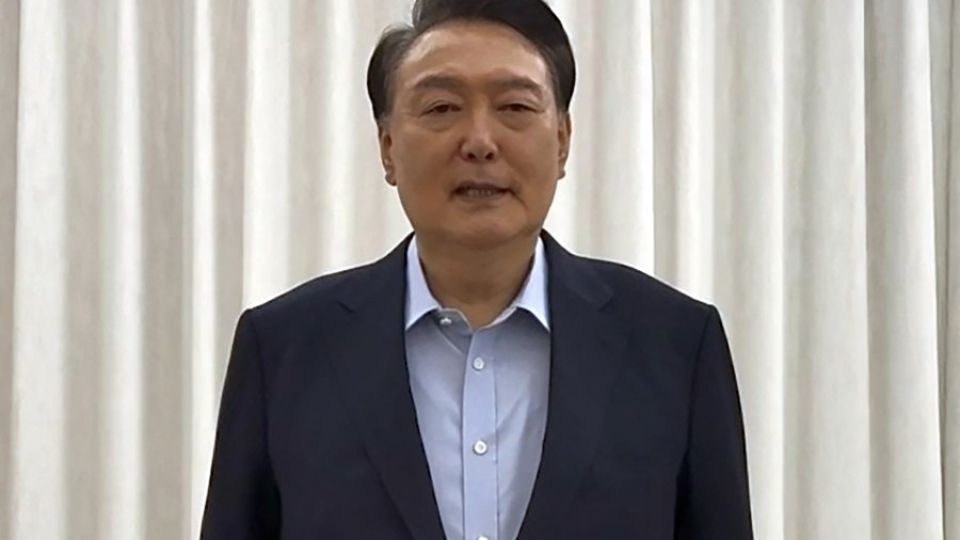January 16, 2025
SEOUL – President Yoon Suk Yeol, currently detained on charges of leading an insurrection and committing abuse of power, said Thursday via his legal representatives that he will not comply with the interrogation by the Corruption Investigation Office for High-ranking Officials.
“President Yoon’s health is not well and has already made his position clear yesterday, so there is nothing else for him to be interrogated for,” Yoon’s defense attorney, Yoon Kap-keun was quoted as saying in an interview with a local media outlet. The CIO has been slated to question Yoon for his charges at 2 p.m. Thursday, delaying the initially planned 10 a.m. grilling due to Yoon’s health issues.
The impeached president reportedly stayed silent during the 10 hours and 40 minutes the CIO interrogated him on Wednesday, after being taken into custody by a joint team of investigators at 10:33 a.m. that day. He did not talk when asked about his name, address and occupation, even to say he is refusing to testify, and refused to have the investigators videotape the interrogation.
In a prerecorded video released moments after his arrest, Yoon claimed that the investigation against him is “illegal.” He has maintained that the CIO has no right to investigate the insurrection charge, and that Seoul Western District Court issuing his arrest warrant is illegal.
He did not sign the report about the interrogation, with his lawyer signing it instead. Testimony not signed by the suspect cannot be used in the court of law.
Yoon, 64, is currently detained at the Seoul Detention Center after becoming the first sitting president in South Korean history to be arrested on Wednesday. He is facing a criminal investigation and impeachment trial for his botched Dec. 3 imposition of martial law, involving his allegedly illegal orders to his military commanders.
The court-issued arrest warrant authorizes Yoon’s detention for up to 48 hours after being taken into custory — in other words, until 10:33 a.m. Friday. The CIO is expected to request from the court a warrant that would authorize his detention for two additional months, which could be extended further.
South Korean courts issue two types of arrest warrants. The first, for “chepo,” officially translated in English as “arrest” in Article 200-2 of the Criminal Procedure Act, authorizes officials to hold suspects for up to 48 hours.
The second type, “gusok,” officially translated as “detention” in Article 201 of the same act, allows suspects to be held for 30 days before being indicted by the prosecution, and two months after. In Yoon’s case, the prosecution and the CIO have agreed to keep him in custody for 20 days for investigation before indicting him.
Yoon challenges legality of arrest, CIO’s authority
A possible obstacle for the joint investigation into Yoon is his legal team challenging the legality of his arrest warrant. His lawyers have requested a court review at the Seoul Central District Court of the initial arrest warrant to arrest Yoon issued by the Seoul Western District Court, claiming that the western court did not have the jurisdiction to do so.
This claim is being made based on what some argue is a grey area in the CIO’s legal bounds of authority, as a newer agency that was founded in July 2020.
The Criminal Investigation Act for Corruption of High-ranking Officials and related laws on the investigative rights of prosectors and the CIO, such as the Prosecutors’ Office Act, state that the CIO can investigate “corruption crimes, economic crimes and other important crimes as determined by presidential decree” as well as “crimes directly related to each crime recognized in relation to the above crimes and crimes referred to the judicial police officer.”
Abuse of power is specifically defined as a corruption crime by the presidential decree in question, directly translated as the “Regulation about the range of crimes investigated by the prosecutors.” However, the crime of insurrection is not specifically mentioned.
Yoon’s legal team argues there is legal ambiguity behind the “crimes directly related” clause, and therefore, in the legal authority for the CIO to investigate the two charges Yoon faces.
The abuse of power charge can be investigated by the CIO but is among charges that a sitting president has legal immunity to. Insurrection is among the charges that even a sitting president can be prosecuted for, but some argue it is not clear whether that charge can be investigated by the CIO.
Yoon’s lawyers are claiming that the CIO does not have the right to indict for the insurrection case, and that such cases are mandated by law to be referred to the Seoul Central Prosecutors’ Office. Since this prosecutors’ office indicts through its counterpart the Seoul Central District Court, his lawyers claim that this particular court has the exclusive jurisdiction to issue warrants on the aforementioned cases.
As such, Yoon’s legal representatives claim that the CIO does not have the right to investigate the charge that he led an insurrection, and that Seoul Western District Court does not have right to issue arrest warrants for him.


